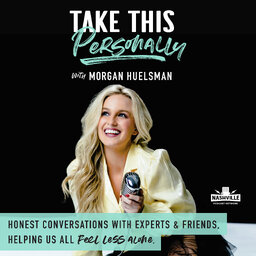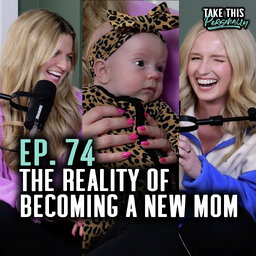[Trauma] How To Heal It, Survival Mode & Why It Looks Different for Everyone
*Part 1 of the trauma discussion* Morgan brings on Trauma Therapist & expert in all things trauma, Lauren Auer. She shares why it became important for her to explore this specialty in therapy, the technological advancements out there that can help with trauma, and why she dubbed the word "traumalescents." Lauren also shares an important analogy to understand trauma within people and why it looks different for everyone. She also shares why survival mode is important, but also how to stop the ruminating cycle as well as what it looks like when we don't heal our trauma.
Follow Lauren Auer: @yourtraumatherapist_
Follow Morgan: @webgirlmorgan
Follow Take This Personally: @takethispersonally
 Take This Personally with Morgan Huelsman
Take This Personally with Morgan Huelsman


